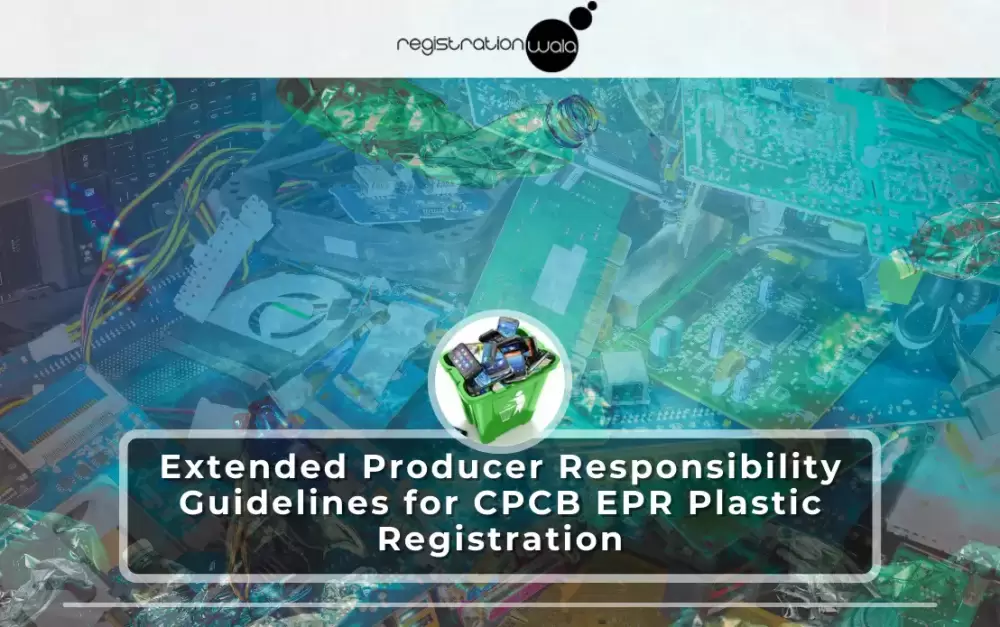
Get a Quote
Get a Quote and Find Services to Fit Your Needs 50000+ Satisfied Clients
5000+ Licenses & Registration
15 Branches across India
75 Years + Combined experience


Explore the history of the classic Lorem Ipsum passage and generate your own text using any number of characters, words, sentences or paragraphs.
Before learning the guidelines for EPR certification for Customs, let us first understand what EPR is. The full form of the EPR certificate is an Extended Producer Responsibility certificate coming under the Act rather E-waste (Management) Rules of 2016. It is a mandatory document for electronic as well as electrical appliance manufacturers that highlights the e-waste management rules that those manufacturers have to follow. To understand what e-waste management is, refer to our EPR service page.
Extended Producer Responsibility is the full form of EPR in plastic & e-waste management. The EPR certificate is issued to prove the business from any environmentally degrading technology(s). To get an EPR certificate, eligible businesses observe the certification requirements and apply for the online CPCB EPR plastic registration.
The e-waste management rules to follow for getting the EPR certification were established to ensure that we can develop technologically without harming the environment. They are our guides in ensuring a better future for the people of this country. But what are those guidelines? Let us see this in the next section.
In this article, you'll learn about the Extended Producer Responsibility Guidelines to follow after you get an EPR certificate in India.
Guideline 1
First, understand the definition of Extended Producer Responsibility. We admit that the term “extended producer responsibility,” without any context, is quite confusing and vague. Thus, as per the EPR Act, here is the definition of Extended Producer responsibility:
The producer of any electronic or electrical equipment must collect and channel e-waste from an expiring product to an authorized recycler or a dismantler
To put it in simple terms, if you’re a producer of any electronic or electrical product, you must transfer the product to a recycler and dismantler once that product is expired.
Guideline 2
This guideline has been created so that you can understand how to take care of the Extended producer responsibility. As your responsibility is to transfer an “end of life” electronic or electrical product to a recycler, you have two ways to take care of it.
Take-Back System
You can install a recycling unit in your factory and “take back” the product from your customers once it has become obsolete.
Collection Centre
Suppose you don’t have the workforce to take the products from the customers personally. In that case, you can establish a collection center near a convenient location where your customers can come and deposit the end-of-life product.
Guideline 3
One of the conditions on which you’re granted the EPR license online is that you must get into an agreement with dismantlers and recyclers. Even if you can deal with recycling on your own, the provisions of your EPR plan suggest that when your business grows, you’d have a hard time keeping up with all the electronic waste. Therefore, take steps ahead and get in touch with dismantlers and recyclers. Consider the agreement you sign with them as part of the EPR certificate cost.
Guideline 4
If you take a deep dive into the EPR certificate format, you’ll realize that EPR registration online is not only meant for electronic or electrical equipment producers. Entities such as the following also fall under E-waste Management Rules:
Thus, if you’re planning to sell your second-hand PCs online, prepare to get the EPR certificate.
Guideline 5
If you sell an EEE without an EPR certificate, it's considered damaging to the environment
If you sell your electronic or electrical equipment (EEE) without the EPR certificate, the Central Pollution Control Board will deem you a damager of the environment. Thus, it can levy heavy penalties on your company.
EPR certificate costs you not only money but also an effort towards ensuring that you take steps to reduce the amount of e-waste in the environment. Now that you know the general guidelines, know that we are the experts who can help you obtain the license. Contact Registrationwala for more information.
Also read: EPR Registration for Plastic Waste Management

Hey there, I'm Dushyant Sharma. With the extensive knowledge I've gained in past 8 years, I have been creating content on various subjects such as banking, insurance, telecom, and all the important registration and licensing processes for various companies. I'm here to help everyone with my expertise in these areas through my articles.

